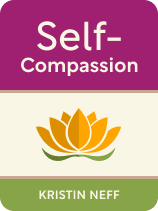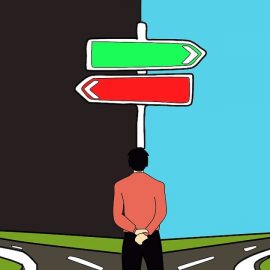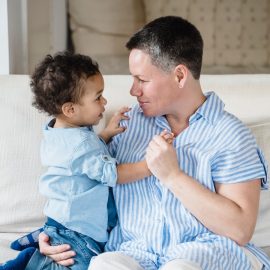

This article is an excerpt from the Shortform book guide to "Self-Compassion" by Kristin Neff. Shortform has the world's best summaries and analyses of books you should be reading.
Like this article? Sign up for a free trial here.
What is the center point of the human connection? What do all humans have in common?
In Self-Compassion, Kristin Neff says that engaging in self-compassion means being aware that the pain you feel is the same pain others feel during hard times. Recognizing suffering as a connection point bonds you to all human beings.
Keep reading to learn what connects human beings on a grounded level.
Suffering Is the Universal Human Connection Point
Our common humanity is the most important point of the human connection because it transcends all other group distinctions and can’t be reduced. In other words, our shared humanity is bigger than race, class, and gender lines; political and religious affiliations; and football, foosball, and hockey teams. She says it’s critical to see your self-worth and sense of belonging as rooted in common humanity because it’s the single, all-encompassing category from which you can never be cast out. You can get kicked off the foosball team, but you’ll always be part of humanity.
(Shortform note: Human behavior experts say the danger of being part of a group is that your desire to belong to it can become your central identity. When the group gives you a greater sense of purpose than anything else, you may start looking for ways to set yourself apart from people who aren’t in it. In doing this, you lose your ability to see or benefit from gifts and support of people outside the group that could be helpful to you.)
Neff says that central to connecting with others is acknowledging a) your imperfections and b) that these imperfections are one small part of a larger, multifaceted picture of characteristics and circumstances that make you who you are—as opposed to all-defining characteristics that make you bad or unworthy. When you view your flaws as part of a larger whole and things to learn and grow from, you can be less critical of them and acknowledge that you’re doing the best you can with the circumstances at hand.
(Shortform note: In The Gifts of Imperfection, Brené Brown says it takes courage to show your flaws to the world. To do so, you have to learn to accept your imperfections rather than see them as something to be ashamed of. The more you can recognize your vulnerabilities as gifts that make you unique, not limitations you need to hide, the more you’ll be able to accept your whole self.)
When you don’t see this connection and focus on your misery or lack of self-worth, it’s difficult to see anything outside of your experience, which can leave you feeling disconnected, isolated, and alone. This problem is particularly pronounced for individuals consumed with self-loathing or unhappiness—for example, people who feel deep shame or inadequacy, and perfectionists.
(Shortform note: Some people have another take on Neff’s view that suffering is a means of connecting to people, arguing that God intentionally brings you suffering for the explicit purpose of helping others. Under this view, when you’re in pain, you’re more able to connect with and provide encouragement to others who are also in pain because God has provided comfort to you in your time of suffering. When you have the strength to allow others to see your weakness, you show them the grace and strength God has shown you in your suffering—and that he extends that grace and strength to them, as well.)
Neff points out two things that worsen the problem of focusing too much on our individual troubles and not enough on our common humanity:
- An American culture that encourages stoicism, individualism, and distinguishing yourself as better and more successful than others
- The human tendency to join groups and teams and adopt an “us vs. them” mentality that centers on diminishing and ostracizing non-group members
Both factors encourage a mindset of disconnection and factioning off from others, rather than connection and coming together.
(Shortform note: Research indicates that people worldwide are becoming more independent, self-reliant, and self-centered as time passes, but for different reasons than those Neff proposes. The rise in individualism, coupled with rising rates of narcissism, may be making people more isolated and focused on ourselves than on others. Experts attribute the rise of individualism to a) countries becoming more economically developed, which increases people’s ability to be self-reliant and b) an increase in transmittable diseases, which may disincentivize people from connecting with others, and c) social media and a heightened focus on narcissistic role models, which encourages a “me me me” cultural mindset. )

———End of Preview———
Like what you just read? Read the rest of the world's best book summary and analysis of Kristin Neff's "Self-Compassion" at Shortform.
Here's what you'll find in our full Self-Compassion summary:
- The key practices, benefits, and obstacles to embracing self-compassion
- How self-compassion can improve your relationships with others
- The two biggest obstacles to self-compassion and how to overcome them






